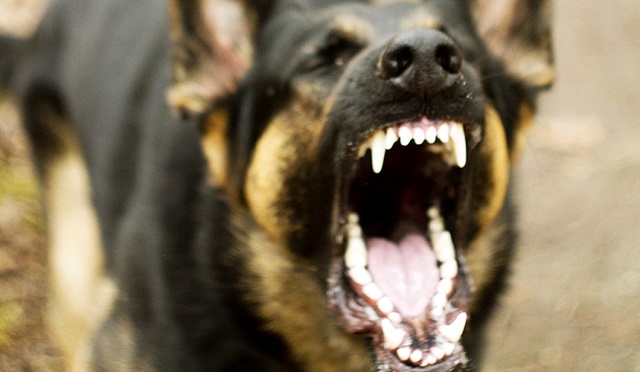
Luwero, Uganda | THE INDEPENDENT | Atleast 357 persons have been bitten by animals within Luwero district in a period of nine months, a health report shows.
According to the health department report, 325 people were bitten by domestic animals and 32 persons by wild animals. The animals are mostly dogs, wild foxes and cats.
The cases have been captured from patients who sought anti-rabies treatment from health centers in Luwero district after they were bitten by animals from January to September 2024. The report didn’t reveal how many people died from the animal bites.
But local authorities say that the late Yudika Nakabuye a resident of Bweyeyo village in Luwero sub county is the latest victim to succumb to injuries sustained after she was bitten by a dog at home in September this year.
Authorities in Wobulenzi town have also registered two cases of persons who died after they were bitten by the dogs.
Dr Bruno Oyik the Medical Superintendent of Luwero Hospital said that although they managed to offer anti-rabies treatment to some patients, many are referred to private pharmacies to buy them when they are unavailable per increasing demand.
As a result, residents and local leaders have demanded that the animal bites be treated as a health concern and serious interventions taken to curb risks associated with the bites.
Edward Zziwa the district councilor for Luwero sub county said that many residents can’t afford the cost of the drugs in private pharmacies nor referrals for further management in hospitals in Kampala city.
Zziwa has since petitioned the District Council to come up with interventions to minimize the risks of animal bites. He suggested that the council should order compulsory massive vaccination of all dogs against rabies, kill all stray dogs and enforce the Animal Disease Act among other strategies to save residents.
Jabel Tamale, the District councillor for Wobulenzi town council said that there is laxity among dog owners and there is a need to enforce a disease act that compels them to vaccinate them annually as well as keep them in enclosed sites.
Abdul Mazinga, the Luwero District Speaker said that he has ordered the District Production Committee to investigate the matter and suggest possible solutions to save the residents from the bites. He adds that the committee will report back in the next council meeting planned in December.
According to Luwero District Veterinary Office, 16,311 households keep dogs of which 71% are living in non-enclosed sites.
Dr Kidda Makubuya the Luwero District Production Officer says that they hold periodic vaccinations, especially in towns but the pet owners don’t take the exercises seriously despite the risks.
“Some dog owners claim that they fear vaccinating their dogs because they will stop barking or innefective in hunting which is not true. We need to intensify sensitization on vaccination of all animals as per the Animal Disease Act so that in case of the bites, these are not harmful to people” Makubuya said.
Makubuya also welcomed the council’s intervention in the fight against the animal bites saying this will help in sensitization and enforcement of the animal disease act.
In 2018, Bombo Town Council passed a bylaw that compels residents to register pets and ensure they are vaccinated to minimize animal bites.
According to section 95 of the bylaw, a person shall not keep a dog or cat exceeding six months of age that is not registered by the town council.
Upon registration, the council shall give the dog a badge or collar and owners of those found loitering in town without identifications commit an offense. Section 98 of the bylaw says that any dog without a badge will be impounded and kept at the town council offices for not more than five days before it is killed or the owner pays a fine.
Despite the bylaw, Bombo town council is among the areas where animal bites occur with local authorities blaming it over unregistered and stray dogs from nearby sub-counties.
In the 2022/23 financial year, atleast 1016 people in Luwero fell victim to animal bites.
****
URN
 The Independent Uganda: You get the Truth we Pay the Price
The Independent Uganda: You get the Truth we Pay the Price




We have lost animals after they are attacked by a Park of Dogs
The survivors had features of rabies, but the carcas was not fit for Diagnosis at the Laboratory ( the peasant transporting to Kampala to confirm diagnosis)
“It is claimed that some of these dogs are abandoned from neighbouring districts”
But is it possible that there is no budget for the vaccination activities at subcontry level?
What about the Vermin officers?
We tried the Wild life Department to attend to Monkeys, there was no response
As one promotes tree growing/ conserving indegenous trees, the neighbours see them as a problem for hosting monkeys
One Health at its best
Such a Pack of dogs, that attacks animals is not likely to belong to any individual
The problem has gone on for some time
Requires professionals to eliminate